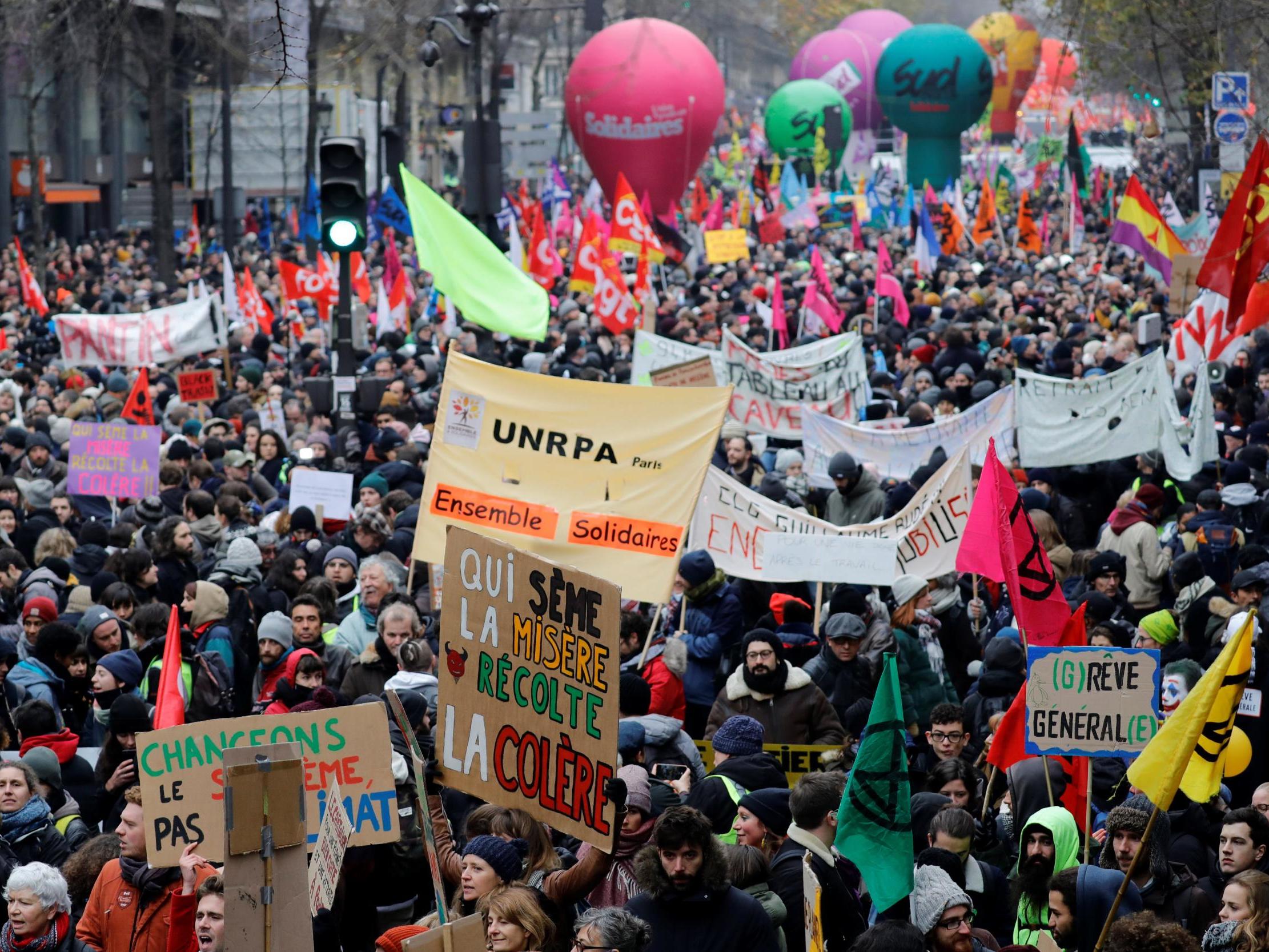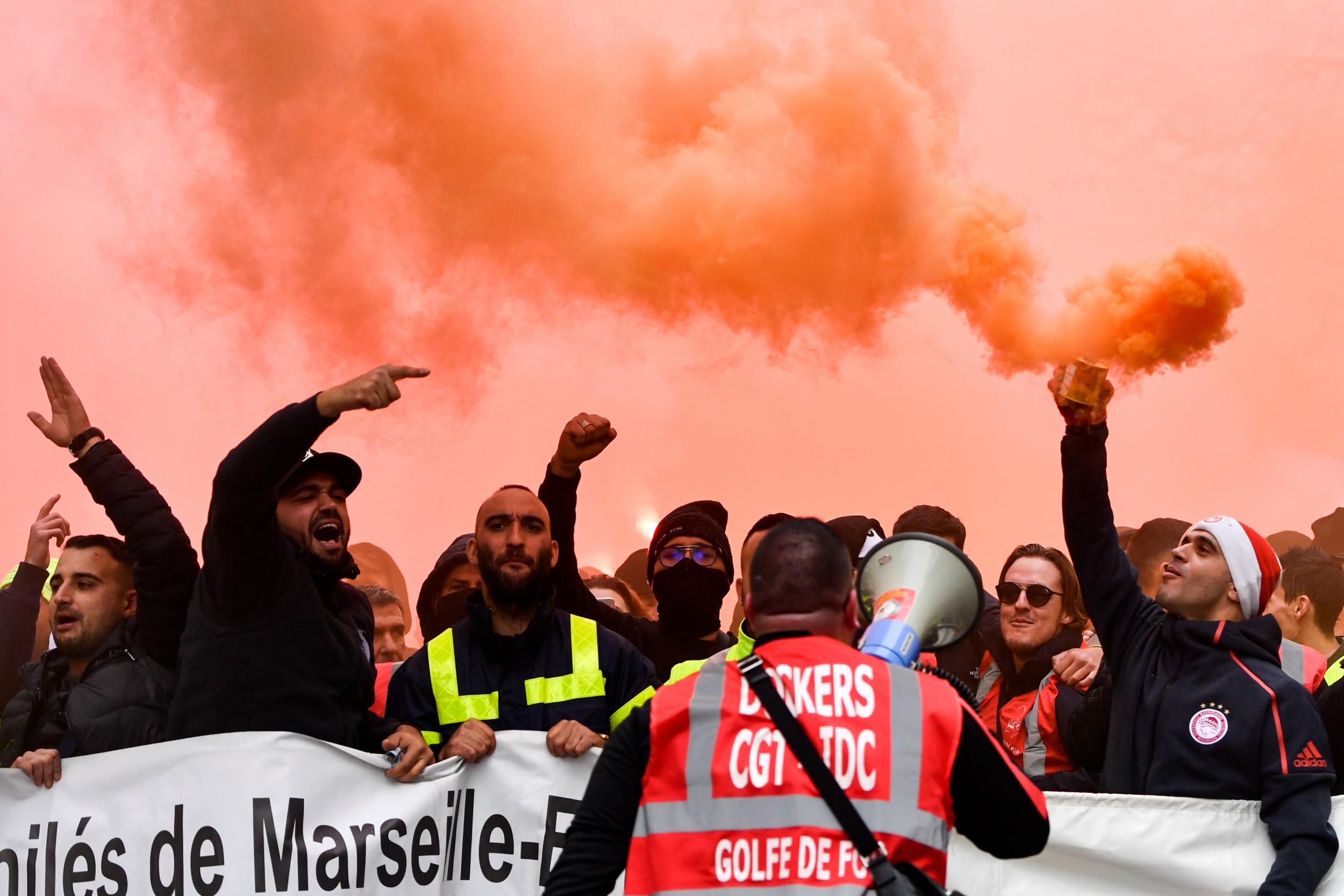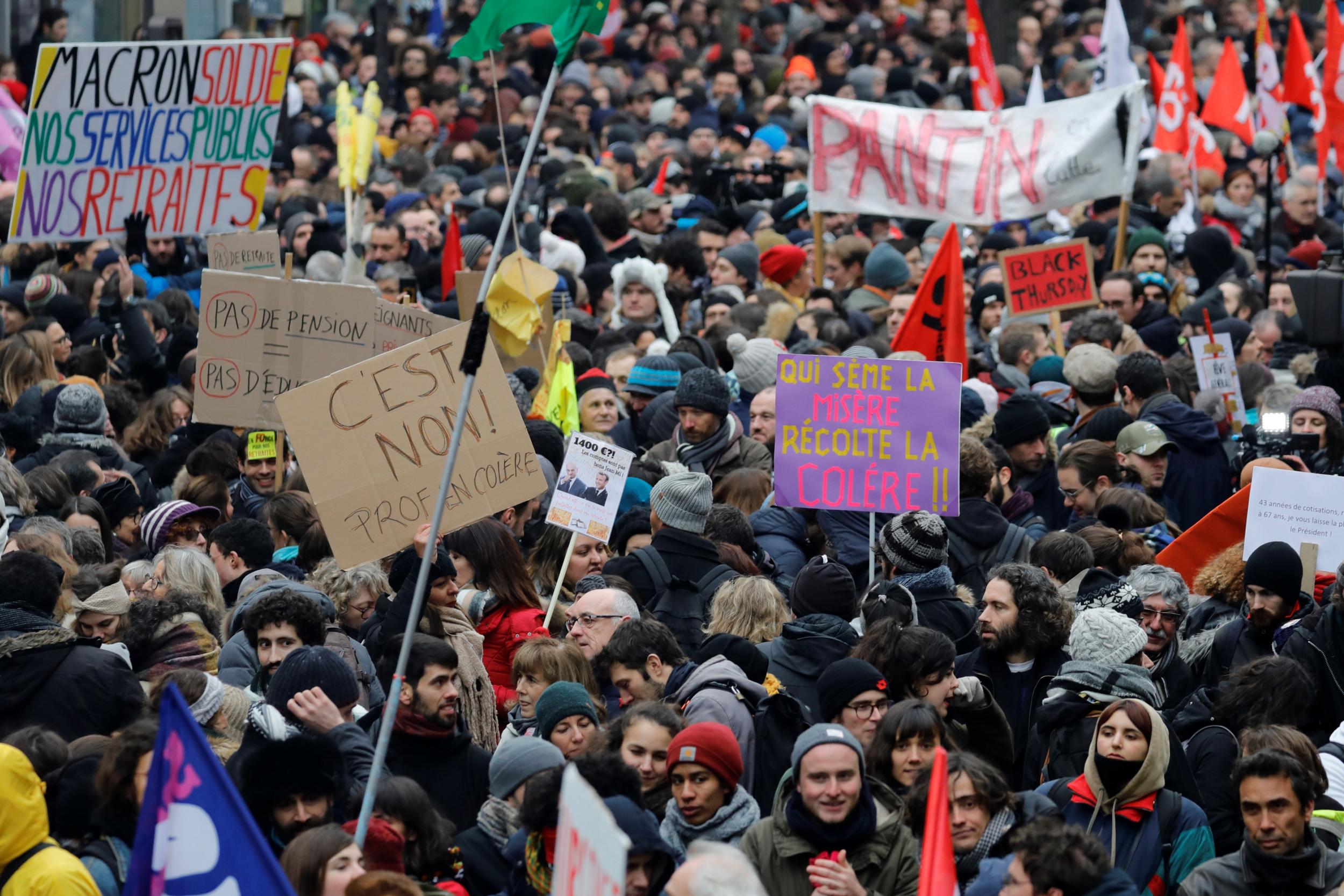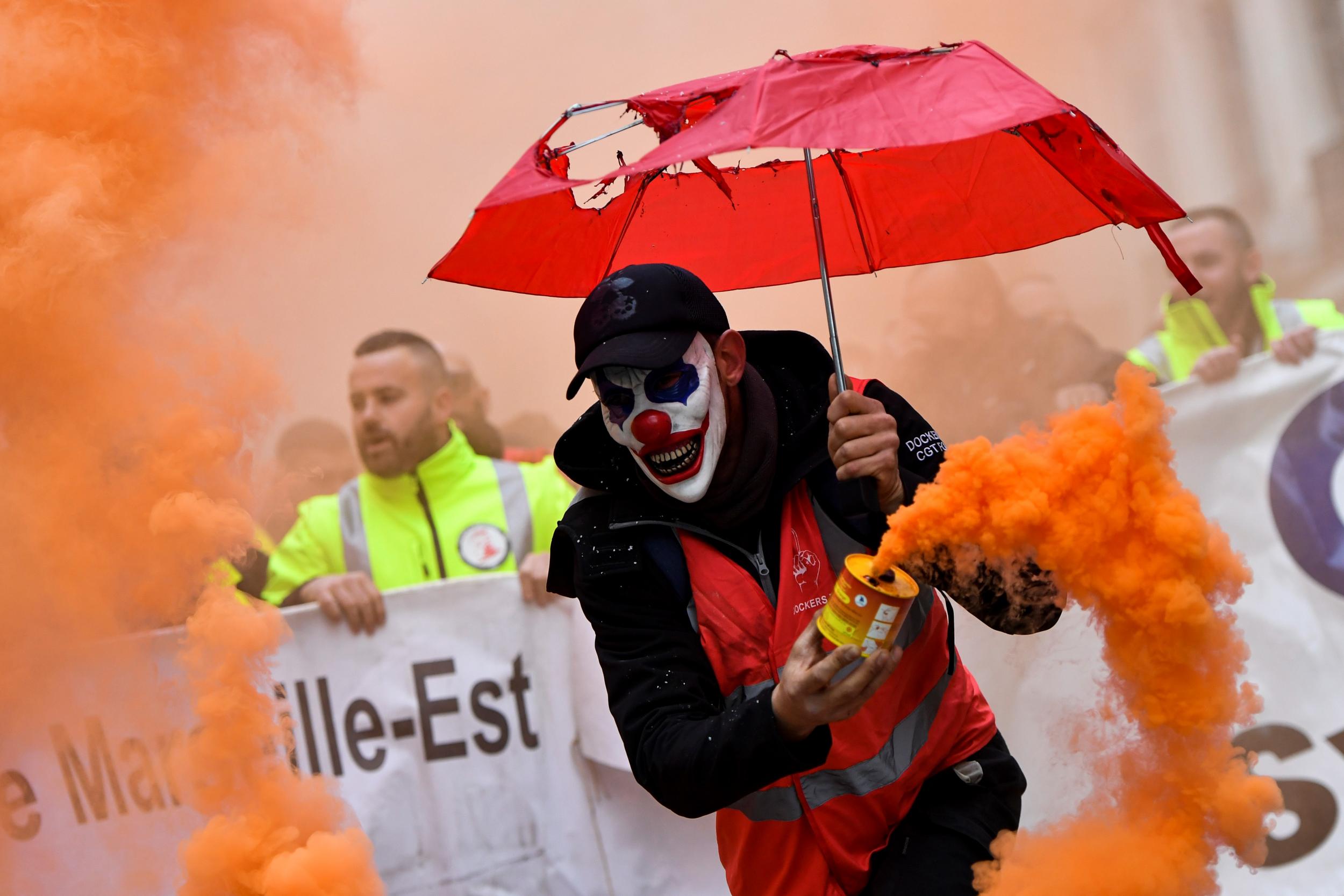France national strike: Tensions rise as millions take to street in protest at Macron’s reforms
Millions of people expected to take part in 250 demonstrations

Your support helps us to tell the story
From reproductive rights to climate change to Big Tech, The Independent is on the ground when the story is developing. Whether it's investigating the financials of Elon Musk's pro-Trump PAC or producing our latest documentary, 'The A Word', which shines a light on the American women fighting for reproductive rights, we know how important it is to parse out the facts from the messaging.
At such a critical moment in US history, we need reporters on the ground. Your donation allows us to keep sending journalists to speak to both sides of the story.
The Independent is trusted by Americans across the entire political spectrum. And unlike many other quality news outlets, we choose not to lock Americans out of our reporting and analysis with paywalls. We believe quality journalism should be available to everyone, paid for by those who can afford it.
Your support makes all the difference.Emmanuel Macron faces escalating tensions as public workers across France take to the streets in the biggest strike to hit the nation in nearly a quarter of a century.
Protestors have been arriving en-masse in Paris since the early hours of Thursday morning to take part in unprecedented anti-government demonstrations against Mr Macron’s pension-scheme proposal and other economic reforms.
Millions of protestors are marching from Gare Du Nord to Place de la Nation in the capital, while other demonstrations are taking place in other cities.
No part of society has remained untouched by the wave of unrest.
Everyone from emergency room medics to rubbish collectors to train drivers are expected to take part and as many as 6,000 police officers have been deployed amid fears that the strike could turn violent.
Widespread tensions
The mood in France is one of indignation.
As many as 250 separate demonstrations are due to take place by workers from many industries, with one poll suggesting as much as 69 per cent of the public support industrial action.
The strike is a blow to Mr Macron’s administration, which has been plagued by unrest.
For many, memory of the Gilet Jaunes (yellow vest riots) lingers on in public memory.

Riot police line the streets, barriers have been put up and shops along the capital have closed their doors over concerns about damage to their businesses.
Interior minister Christophe Castaner has also said he fears some protests will turn violent.
Why the unrest?
The French people want reform and remain hostile to Mr Macron’s attempts to give it to them. Since coming to power in 2017, various economic reforms and strategies have been put forward but have often been met with anger by wary workers.
This particular wave of unrest has been triggered by Mr Macron’s plan to oversee the introduction of a universal pension system which would replace the 42 different schemes currently in place.
Under this change a new points-based will reward employees for each day worked which can then be put towards future benefits.
Workers claim this system would force them to retire later or even reduce the amount they will take home. According to the BBC, those who retire before 64 would receive a five per cent lower pension.

Logistics
Industrial action began on Wednesday night and it is unclear how long this particular wave will last.
Some union leaders have even warned strikes would continue until Mr Macron wholly agrees to abandon the latest economic proposals.
Talking to the BBC, union official Christian Grolier of the Force Ouvrière (Workers’ Force) said: “What we’ve got to do is shut the economy down.”
The biggest casualty of the strikes is the capitol’s transport network which has virtually ground to a halt, as 82 per cent of drivers have taken to the picket lines. As much as 90 per cent of high-speed and inter-city trains have been cancelled, while commuters faced a difficult task of trying to get to work.
Eurostar cancelled as many as half their services into Paris from London and Brussels, while prominent airlines have been cancelling flights across the board. As many as 40,000 EasyJet passengers have been affected.
At least 60 per cent of school teachers are expected to take part, essentially bringing educational institutions to standstill.

Resolving the crisis
It is not clear how the strikes can be solved, as both sides fear there is too much to lose.
The demonstrations are another crucial blow to Mr Macron’s leadership, following violent protests last year over increased diesel taxes and rising living costs. Tensions have also been bubbling over in 2019, so the French president will not want to concede.
Additional reporting by agencies
Join our commenting forum
Join thought-provoking conversations, follow other Independent readers and see their replies
Comments